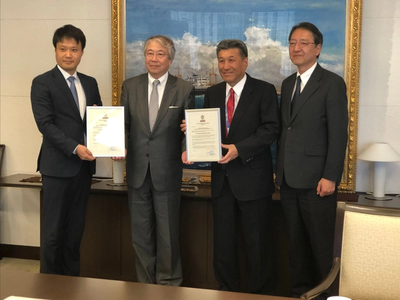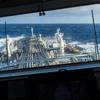BV Appoves Cryo-Powered Regas System Design
Bureau Veritas Marine & Offshore (BV) has issued the first approval in principle for a new cold energy ‘Cryo-Powered’ regas system for use in FSRU applications.
The approval has been issued to both Mitsui O.S.K. Lines, Ltd. (MOL) and Daewoo Shipbuilding & Marine Engineering Co., Ltd (DSME). The ‘Cryo-Powered Regas’ system is a cold power generation technology based on the Organic Rankine Cycle - a proven technology used in multiple onshore LNG terminals for decades.
This will be the first time the system has been developed for use in a floating terminal. During the LNG regasification process – where the liquefied natural gas at -163° warms up and changes to its gaseous state – cold energy is recovered for power generation instead of being fully dispersed back into the ocean as cold seawater. The system is targeted to reduce the fuel gas consumption and CO2 emission for FSRU approximately 50% by recovering approximately 70% of the power consumption in the regasification process at maximum rated regas flow rate.
Claude Maillot, Senior Vice President, North Asia Zone for BV said: "We are always looking to support innovation. Gas is a particular area of focus and expertise for BV. Floating gas terminals are well supported both by our rules for FSRUs and FSUs and by working closely with important stakeholders like MOL and DSME to promote safety, sustainability and efficiency in FSRU/FU design, construction and operations."
MOL and DSME plan to test the technology in a small-scale pilot facility early in 2021 and be able to provide the technology to customers in future FSRU projects.
Bureau Veritas Marine & Offshore is active across the marine gas supply chain with strong market position in LNG carriers, LNG as fuel projects and the FSRU/FSU sector. In 2018, BV issued the first classification rules specifically developed for floating gas terminals.














